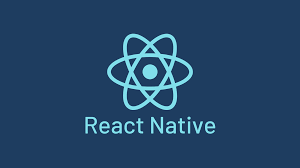React.js vs. React Native
Introduction
In the rapidly evolving world of software development, efficiency and flexibility are paramount. Two technologies that have become popular for their robust features and community support are React.js and React Native. Both developed by Facebook, these frameworks have transformed how developers build interfaces for web and mobile. Understanding the strengths and applications of each can significantly influence the success of your development projects.
What is React.js?
React.js is a JavaScript library that excels in building dynamic and responsive user interfaces for web applications. It leverages a component-based architecture, allowing developers to create reusable UI components. One of its standout features is the Virtual DOM, which optimizes rendering and enhances performance by updating only parts of the page that have changed.
Key features:
JSX (JavaScript XML): Allows writing HTML in React within JavaScript code.
One-way data binding: Provides better control throughout the application.
Component-based architecture: Facilitates the maintenance of large codebases.

What is React Native?
React Native extends React.js into the mobile development realm, enabling developers to build mobile apps that are indistinguishable from apps built using Objective-C, Swift, or Java. Unlike typical hybrid frameworks that render using web technologies, React Native renders using actual native views, offering a more authentic user experience.
Key features:
Cross-platform development: Write once and deploy on both iOS and Android.
Native components: Use native widgets and access native functionalities.
Live and hot reloading: Streamline and speed up the development process.

Core Differences Between React.js and React Native
While both technologies share common principles, their applications are fundamentally different:
Development Platform: React.js is strictly for web applications, harnessing the capabilities of HTML and CSS. React Native, on the other hand, targets mobile platforms, utilizing native components for UI rendering.
User Interface Components: In React.js, developers use HTML/CSS to create the UI, which is rendered in web browsers. React Native uses platform-specific native components that integrate seamlessly with mobile device features.
Performance: React Native operates closer to native app performance due to its direct interaction with mobile device APIs, unlike React.js, which depends on the browser's capabilities.
Advantages and Disadvantages
React.js:
Pros: Ideal for dynamic application interfaces, strong community support, and seamless integration with other libraries and frameworks.
Cons: Not inherently equipped for building mobile applications; complex state management requires additional tools like Redux.
React Native:
Pros: Reduces the need for separate iOS and Android teams, provides a near-native user experience, and enhances code reusability.
Cons: Sometimes struggles with performance for complex animations and high computation demands; third-party libraries are often needed for advanced functionalities.
When to Use Each
React.js is your go-to when developing single-page applications where performance, SEO, and scalability are crucial. It's particularly beneficial for projects that prioritize responsive, state-of-the-art web interfaces.
React Native shines for projects that aim to deliver a robust mobile experience without the resource demands of native development. It’s perfect for applications requiring full access to mobile device capabilities while maintaining a consistent look and feel across platforms.
Conclusion
Choosing between React.js and React Native depends more on your project requirements than on the technologies themselves. For developers looking to maximize productivity without sacrificing quality, understanding when and how to use each can make a significant difference.
Choosing the right development tool isn't just about the capabilities it offers; it's about finding the perfect match for your project's needs. Between React.js and React Native, your next masterpiece awaits.








